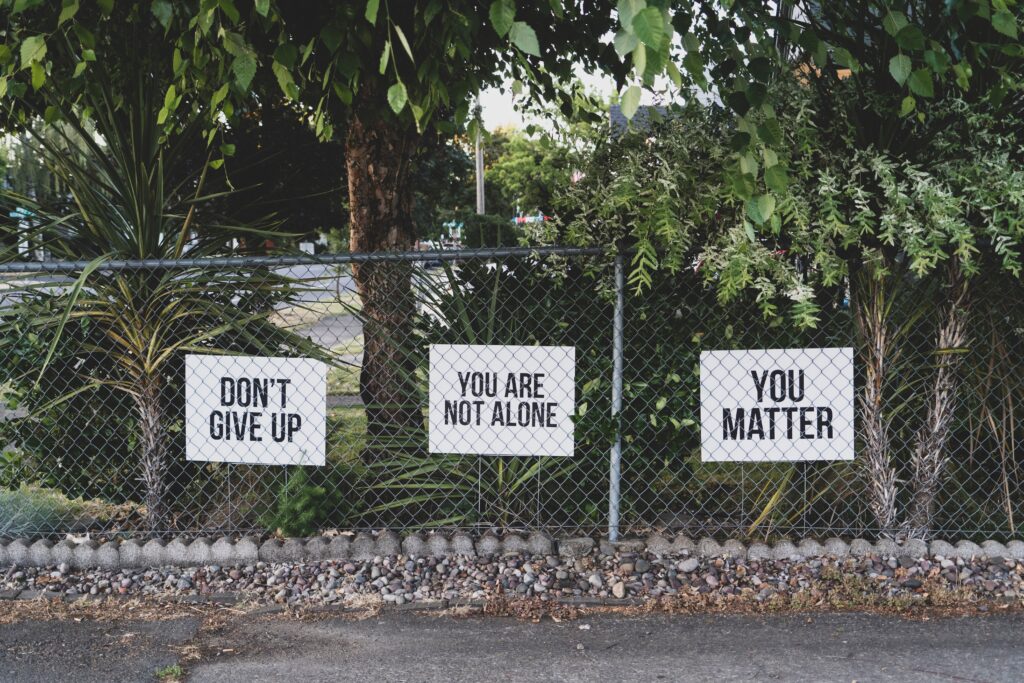July is Minority Mental Health Awareness Month—a time to reflect on how the United States continues to deal with the mental health aftermath of the COVID-19 pandemic, and highlight new mental health resources.
Mental health conditions do not discriminate—but someone’s identity and background can impact their ability to access mental health treatment. In 2008, Bebe Moore Campbell National Minority Mental Health Awareness Month was established to actively address these disparities in access to mental health treatment.
The impact of COVID-19 on mental health
More than two years on from the pandemic, many continue to struggle with its consequences.
According to a public health investigation published by the JAMA Network, Black, Hispanic, and Asian individuals surveyed had been experiencing depression symptoms in single digits (8.4%, 8.4%, 4.4%), but these numbers jumped to double digits (24.2%, 34%, 23.1%) during the COVID-19 pandemic.
It is essential to recognize the mental health impact of the high levels of discrimination Asian Americans faced during the pandemic due to misinformation about the origins of the virus. In addition, Black Americans had to contend with the pandemic alongside ongoing discrimination and police brutality, heightened by the murder of George Floyd.

National and local resources for mental health care
National Alliance on Mental Illness (NAMI) CEO Daniel H. Gillison, Jr. wrote in a recent blog post that investing in early intervention is essential for people to get the best mental health care possible. Often, the average delay between symptom onset and treatment is 11 years.
This goes to show that there is still a long way to go in ensuring people have access to the best care—and every month of the year must be dedicated to confronting this challenge.
Destigmatizing mental illness is key—and we can start by recognizing that mental illness is quite common. According to NAMI, 1 in 5 U.S. adults experience mental illness each year.
There are a wide array of resources available to people, including minorities, who are currently struggling with their mental health, including the Office of Minority Health at HHS and Mental Health America’s BIPOC Mental Health Month 2022 Toolkit, which includes worksheets, social media materials, and links to multiple mental health resources.

Meanwhile, on July 16, the new 988 Suicide and Crisis Lifeline launched, replacing the 10-digit National Suicide Prevention Lifeline. This shift will make it easier for people who are experiencing a mental health crisis to contact a trained mental health professional. A bipartisan bill created this phone number to fill a crucial gap in mental health crisis care, because 911 is not suited to deal with such issues. The resource is a reflection of collaboration between the Department of Veterans Affairs (VA), Department of Health and Human Services (HHS), and the Substance Abuse and Mental Health Services Administration (SAMHSA).
Another helpful resource comes from the organization Start Your Recovery, whose website serves individuals who may be struggling with substance use disorder. Start Your Recovery came about by bringing together leading experts in substance use disorder from across a wide array of professional and lived experiences including from academic, nonprofit, and government institutions. Ultimately, this website shows visitors who may be grappling with substance use disorder that they are not alone and it helps them locate support.
Much of the work being done to assist individuals living with mental illness is being done at the local level. One organization doing this important work is Capital Clubhouse, which was founded in 2017 and became operational in 2019. Capital Clubhouse is a member-based community for individuals living with mental illness, where they are treated with dignity and respect and develop hope for new opportunities in their lives. Capital Clubhouse gives its members the chance to practice skills and develop routines that are useful in workplaces. (The Biotechnology Innovation Organization (BIO) is a proud supporter of Capital Clubhouse.)
According to information shared by Capital Clubhouse with Bio.News, approximately 60% of its members are also members of Black and Brown communities.
A Capital Clubhouse member—whose identity is not being shared at their request to respect their privacy—told Bio.News that people should be mindful that “many [people] have backgrounds, religions, or identities that are not visible. Be conscious of others when thinking about treating them differently from yourself or those you think are not like you.”
This is great advice not only during Minority Mental Health Month, but all year long.




